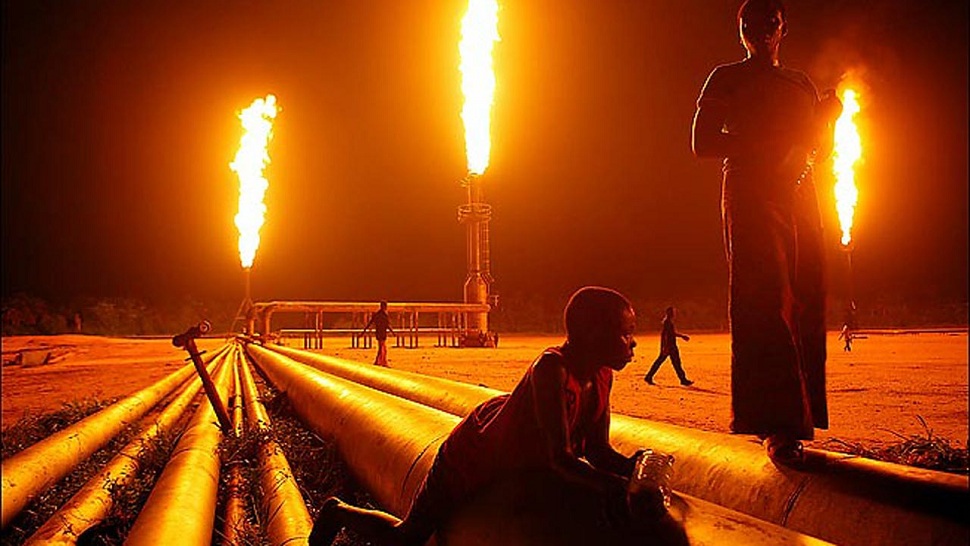Announcement by the Nigerian Upstream Petroleum Regulatory Commission (NUPRC) recently that 42 indigenous oil and gas companies have emerged as winners of 49 flare sites in the 2022 Nigerian Gas Flare Commercialisation Programme (NGFCP) bid process is heartwarming. It comes after approximately seven years of developing the NGFCP, the first of its kind in the history of hydrocarbon exploration and production in Nigeria.
Thirty-eight of the 42 indigenous companies have been awarded 40 flare sites for standalone single flare site development, while four have been awarded nine sites to be developed as clusters.
The programme was one of the government’s initiatives aimed at achieving zero routine gas flaring by 2035 and net zero emissions by 2060 in the country, with the goal of preserving the environment and reducing the impacts of routine gas flaring, especially on people living in the oil-rich Niger Delta. The Muhammadu Buhari government had disclosed that 226 companies submitted bids before the project was suspended at the onset of the COVID-19 pandemic in 2020.
This progressive development is exciting. The practice of burning off natural gas during oil extraction and production processes has several negative impacts, one of which is gas flaring and its attendant wastage and degradation of the environment. For example, the oil-rich Niger Delta region has continued to suffer from the devastating effects of gas flaring and oil spills resulting from the operations of oil and gas companies in the Niger Delta. Several studies attest that gas flaring releases greenhouse gases into the Niger Delta atmosphere and causes a reduction in biodiversity and the health status of the environment’s inhabitants.
The fact remains that gas flaring harms local ecosystems, emitting pollutants that can have adverse effects on human health, especially in the Niger Delta region. Gas flaring releases harmful pollutants that can lead to respiratory problems, cardiovascular diseases, and other health issues in nearby communities. Therefore, the elimination of the gas flaring sites is a task that must be carried out to eliminate health issues.
The selection of the 42 indigenous oil and gas companies to ensure that restoration efforts at gas clearing are environmentally sustainable and to minimise further damage is praiseworthy. In fact, clearing gas flaring sites is a critical step in addressing environmental, social, and economic challenges associated with gas flaring. Many countries and regions have regulations that restrict or require the reduction of gas flaring.
Selecting responsible companies helps ensure compliance with these regulations, avoiding legal issues and penalties. Clearing gas flaring sites reduces air pollution, improving the health and well-being of communities such as those in the Niger Delta. Clearing and addressing gas flaring sites help reduce Greenhouse Gas Emissions and the amounts of carbon dioxide (CO2) and methane (CH4). Clearing gas flaring sites represents a commitment to long-term sustainability and responsible resource management. It helps address historical environmental damage and creates a cleaner legacy for future generations.
Having said this, our concern is whether the selected 42 indigenous oil and gas companies have the requisite expertise in gas flare reduction. Do they have the necessary capacity to drive innovation and deploy new technologies to address the issue more effectively? Are they companies with integrity? Can they build trust and foster positive relations among local communities and stakeholders? Selecting the right companies to clear gas flaring sites is crucial for addressing environmental, social, and economic challenges associated with gas flaring. For instance, gas flare sites can be a fire hazard, posing risks to infrastructure, farmlands, and personnel. Therefore, it is crucial that diligent and incorruptible companies are recruited to clear gas flare sites to safeguard the environmental, health, safety, and economic flourishing of communities.
More importantly, instead of complaining about the dangers posed by gas flaring, Nigeria can potentially derive significant economic benefits from addressing and reducing gas flaring, thus turning gas flaring into an asset in the country. One of the most direct ways to benefit economically from gas flaring is to invest in technology and infrastructure that captures and processes the flared gas. This captured gas can then be utilised for various purposes, such as power generation, industrial processes, or even exported as liquefied natural gas (LNG). Therefore, Nigeria should reap enormous economic benefits from the flared gases, as other countries have done.
It is embarrassing that Nigeria is still experiencing constant electricity failure in the 21st century. The national grid constantly collapses with no end in sight. Utilising the captured gas to generate electricity can have both economic and social benefits in Nigeria. It can provide a reliable source of electricity supply for both industrial and domestic consumption, thus reducing reliance on more expensive and polluting energy sources. Using the gas for electricity generation or as an energy source can contribute to diversifying energy portfolios and reducing dependence on fossil fuels. Besides, the process of clearing and repurposing gas flaring sites can be used to lower the high unemployment rate in the Niger Delta communities. The idle young people that constitute the bulk of the Niger Delta population are indeed a vibrant workforce to be drafted into the gas clearing sites so that they can assist in clearing the sites and improve the health of the people of the Niger Delta.
Beyond the government’s rhetoric, concrete measures must be marshaled out to end gas flaring in Nigeria. The government should strengthen its regulatory framework and ensure that oil companies comply with existing laws. This will require the government to muster the political will to enforce strict financial penalties on oil companies for flaring gas. These penalties should be substantial enough to discourage flaring and incentivise the development of alternative solutions. The government should provide incentives for oil companies to capture and utilise natural gas rather than flaring it. This could include tax breaks, subsidies, or other financial incentives to encourage the construction of gas processing facilities.
Finally, the government should task oil and gas companies in Nigeria with their corporate social responsibility, particularly on the environment, by clearing their flare sites. Clearing flare sites is a step toward fulfilling these expectations and improving their corporate image. Advances in technology have made it increasingly cost-effective to capture and utilise flare gas rather than flaring it. Diligence in clearing sites can facilitate the implementation of these technologies.
To achieve this, there should be the political will at the highest levels of government to combat corruption among oil and gas companies. The government should create mechanisms to protect whistleblowers, who report corruption within the government or the oil and gas industry. It should also establish independent agencies or commissions responsible for monitoring and investigating corruption allegations within the oil and gas sector.
Let us heal the environment now to safeguard the country’s future.
The Guardian is on WhatsApp! We’ve launched a dedicated news channel to send you the latest news, features and plenty more directly on WhatsApp and all you need to do to sign up is click through to our one-way broadcast channel here for ‘Guardian Nigeria’ to appear in the ‘Updates’ tab on your WhatsApp.
The Guardian





